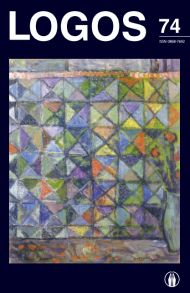Filosofija Ir Ugdymas Naujųjų Medijų Amžiuje: Marshallo Mcluhano Indėlis
Philosophy and Education in the Age of New Media: Marshall McLuhan’s Contribution
Author(s): Darius KlibavičiusSubject(s): Education, Media studies, Social Philosophy, Social development
Published by: Visuomeninė organizacija »LOGOS«
Keywords: M.McLuhan; new media; teaching of philosophy; teaching methods; visual perception;
Summary/Abstract: The article analyses the new media impact on education and on the teaching of philosophy. Here, a great attention is devoted to the analysis of Marshall McLuhan’s approach “I don’t explain – I explore” as well as to the relationship between his mosaic philosophical style and the tradition of linear thinking. Due to the fact that the Electronic Era emphasises distrust of traditional scientific statements, the teaching process gives its priority to the exploration of the surrounding environment and the analysis of current problems. Knowledge is no longer valued for its ability to be a true reflection of the reality, yet it is valued for its ability to shape the world and experiment. Consequently, education based on electronic communication structures emphasizes the pragmatic function of knowledge and its practical applicability. As a result, new media eliminates the existence of experts and authorities in the process of education since nowadays both students and teachers become participants, consumers and independent researchers in this rapid media-based educational process. In the light of these changes, the main aim of philosophy is to identify ideologies and develop an independent point of view. Being an open-minded discipline and an important factor ensuring democracy, philosophy is capable of moving the new media society from individualism to intercultural dialogue.
Journal: LOGOS - A Journal of Religion, Philosophy, Comparative Cultural Studies and Art
- Issue Year: 2013
- Issue No: 74
- Page Range: 72-85
- Page Count: 14
- Language: Lithuanian

